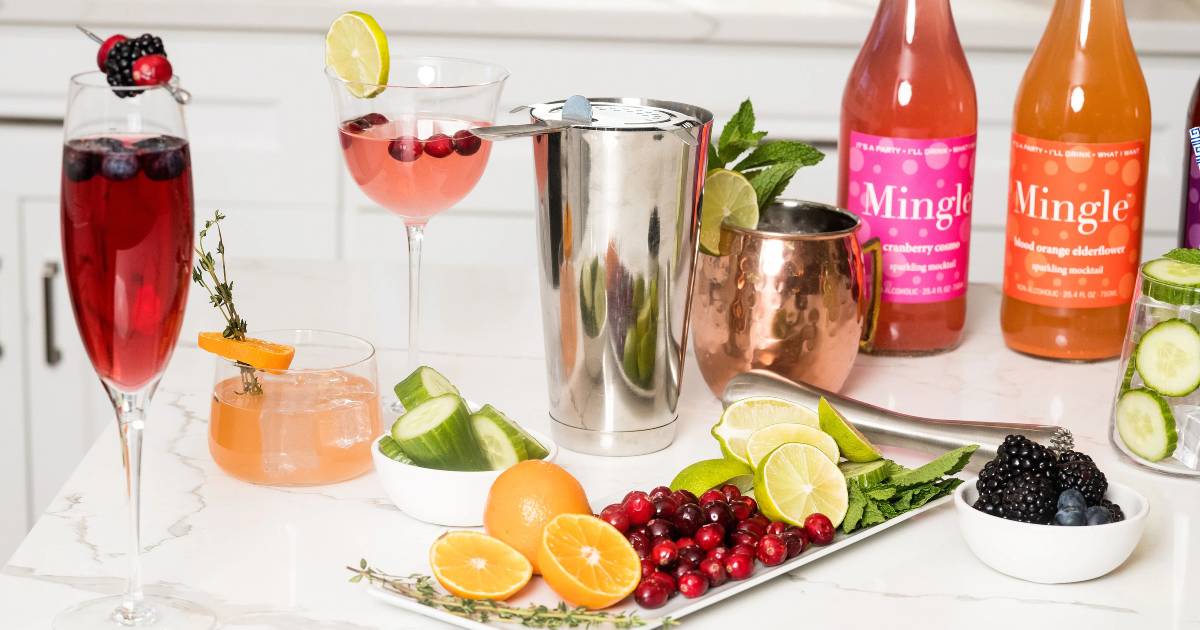Will Licensing Tap into Alcohol-Free Beverages?

In recent years, the number of people cutting down on their drinking—a group that is sometimes referred to as sober curious—has been on the rise. As a result, companies are tapping into alcohol-free drinks to cater to this growing consumer group.
A recent study by Heineken and OnePlan found 52% of Gen Z and Millennial consumers said their consumption of mocktails and alcohol-free beer has increased. And thanks in part to trends like Dry January and Sober October (which see consumers give up alcohol for limited periods), the global non-alcoholic beverages market is expected to grow from $923 million in 2020 to more than $1.7 trillion by 2028, according to Fior Markets.
While brand licensing has not yet entered the mix of mocktails and non-alcoholic beers in a major way, the ingredients are increasingly there.
For example, Diageo—known for its Guinness licensing program run through in-house staff and Beanstalk—bought a majority stake in U.K.-based Seedlip, one of the pioneers in non-alcohol distilled spirits. Seedlip’s offerings include a Spiced Mule that combines AllSpice peppers, ginger honey syrup, juice, and club soda.
There’s also Mocktail Beverages, which, as the name implies, specializes in non-alcoholic spirts like The Vida Loca Mockarita, Sevilla Red Sangria, and Scottish Lemonade Mockscow Mule.
And on the beer side there are plenty of offerings, including Heineken 0.0 and Guinness 0—brewed at the same St. James Gate plant as its alcohol brethren—as well as Athletic Brewing Co. and its Run Wild IPA, which helped launch the alcohol-free brewer in 2017.
The companies alcohol-free drinks have all trappings of spirits and brewing companies. For example, Athletic Brewing (which targets outdoor enthusiasts under the age of 44) sells a mix of t-shirts, caps, sweatshirts, and water bottles on its website. Additionally, Athletic recently announced a partnership with JetBlue that will see its beverages sold on the carrier’s U.S. flights.
Another sure sign of a growing trend: celebrities investing in alcohol-free products and companies.
Bella Hadid, who spoke out about taking a break from drinking in 2021, said more recently that she occasionally drinks but cut out hard liquor. The supermodel also invested as a co-founder of Kin Euphorics, a wellness brand that sells canned drinks infused with “functional” mushrooms that promise to boost energy levels and bolster immune systems. Musician Katy Perry launched De Soi, a line of non-alcoholic aperitifs that contain botanicals (bay leaf, rose, and others). And actress Blake Lively previously bowed Betty Buzz, a collection of premium mixers that can also be enjoyed on their own.
With endorsements from celebrities, alcohol-free beverages have found a home in bars and restaurants. This includes Getaway Bar in Brooklyn, NY, which serves mocktails alongside alcohol-free beer and wine. And Seedlip gained placement in more than 300 restaurants as well as with online at home goods retailer Williams Sonoma. Mingle Mocktails, meanwhile, found distribution for its Cranberry Cosmo and Cucumber Melon Mojito at Total Wine & More stores in Arizona, Minnesota, and Florida. A six-pack of Cranberry Cosmos sells for $63.95.
“One of the biggest disruptors on the bar side is the rise of spirit-free and low-alcohol cocktails,” said Dana Pellicano, VP Food + Beverage for Global Operations at Marriott International, told Restaurant Business. “People are eager to socialize again but are looking for ways to join the fun without overdoing it.”




